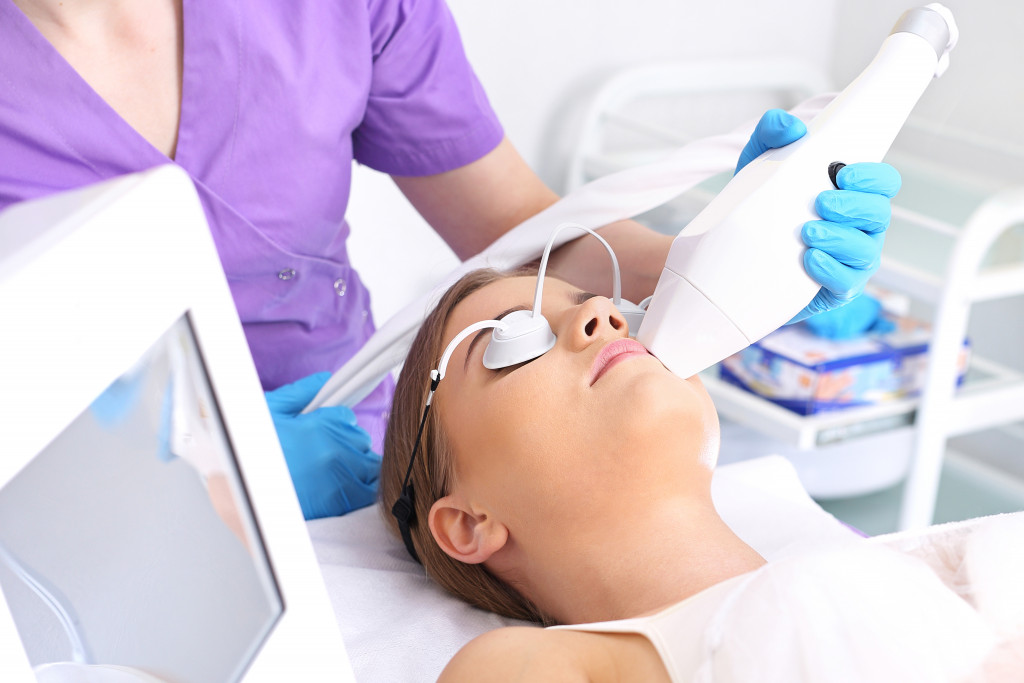Hirsutism is a condition that causes women to grow hair in places where they typically wouldn’t. This can include the face, chest, back, and abdomen. While it’s perfectly normal for women to have hair on their bodies, hirsutism can cause this hair to be thicker and darker than usual.
According to the Mayo Clinic, hirsutism affects up to 5% of women. It can be caused by several things, including certain medical conditions, medications, and polycystic ovary syndrome (PCOS). Hirsutism can also be a side effect of menopause.
Living with hirsutism
In some cases, the hair may also grow in areas where women typically don’t have much hair, such as the stomach or thighs. Hirsutism is usually caused by an imbalance of hormones called androgens. Androgens are responsible for developing secondary sexual characteristics, such as facial and body hair. When there’s an excess of androgens in the body, it can lead to hirsutism.
While hirsutism does not have any associated health risks, many women feel self-conscious about the condition. It can make them feel like they don’t fit in or are not attractive.
Moreover, women who struggle with hirsutism may avoid going out in public or participating in activities they enjoy. This can lead to social isolation and depression. The condition may even affect their careers and relationships, resulting in stress.
What causes hirsutism?
Many factors can contribute to hirsutism. These include:
- Family history: If your mother or sisters have hirsutism, you’re more likely to have it.
- Medications: Certain medications, such as birth control pills, can cause hirsutism.
- Medical conditions: Hirsutism can be a symptom of certain medical conditions, such as Cushing’s disease, PCOS, and adrenal gland disorders.
- Menopause: Menopause can cause changes in hormone levels that result in hirsutism.
How is hirsutism treated?
Depending on the root cause of hirsutism, different treatments may be necessary. Your doctor can prescribe a different drug if it is due to medication. If it’s caused by a medical condition, you may need treatment for that condition. In some cases, the following treatments may be recommended:
Traditional hair removal
Some people with hirsutism prefer removing excess hair using traditional methods, such as shaving, waxing, or depilatory creams. While these methods can be effective, they must be done frequently and can be painful. Using cream depilatories on sensitive areas, such as the face, can also cause skin irritation.
Lasers

Lasers are a more permanent solution for hair removal. They work by targeting the pigment in the hair and destroying the follicle. What’s great about this method is that it is offered to many clinics worldwide. You can be in a tropical country, and there’s always a chance to find a clinic that offers laser hair removal. For instance, if you’re in the Philippines, look for “laser hair removal in the Philippines,” and you will indeed find a lot of options.
Electrolysis
Electrolysis is similar to laser hair removal but uses electricity instead of light to destroy the hair follicle. It can be effective for small areas, but it can be painful and time-consuming.
Hormone therapy
In some cases, hormone therapy may be recommended to treat hirsutism. This can be done with birth control pills or other hormone medications. However, this treatment is not suitable for everyone and may have some side effects.
Is hirsutism genetic?
Hirsutism is often genetic. In fact, many women with hirsutism have a family history of the condition. Hirsutism can be passed down from either parent, and it may be more likely to occur if multiple family members are affected. While there is no cure for hirsutism, there are several treatment options available that can help to reduce hair growth. If you think you may be affected by hirsutism, talk to your doctor about your symptoms and family history.
When to visit the doctor
As mentioned, hirsutism is a relatively common condition that affects many women. However, if you’re concerned about the hair growth on your body, it’s best to visit your doctor. They can help to determine the cause and recommend the best course of treatment. Some of the unusual symptoms that might concern you include:
- Sudden onset of hair growth
- Hair growth in unusual places, such as on the face or chest patches of missing hair
- Signs of masculinization, such as a deepening voice or increased muscle mass
These symptoms are not always indicative of a severe condition, but it’s best to get them checked out by a doctor. Early diagnosis and treatment can help to improve the symptoms and prevent any further complications.
The bottom line
Excessive hair growth in women is known as hirsutism. It’s a relatively common condition that affects many women and can be caused by several different factors. There is no cure for hirsutism, but there are treatments available that can help to reduce hair growth. If you’re concerned about the hair on your body, talk to your doctor. They can help to determine the cause and recommend the best course of treatment.